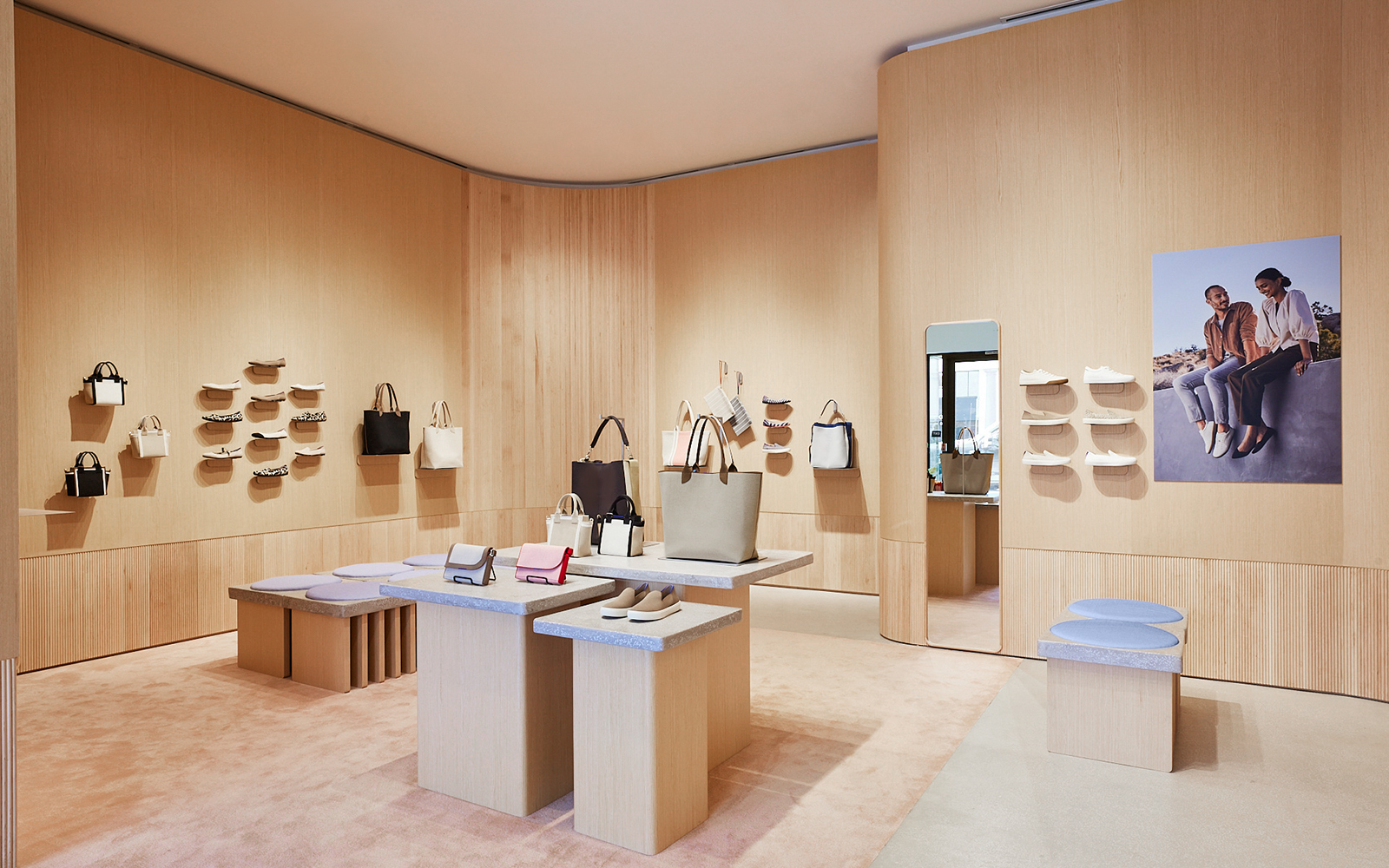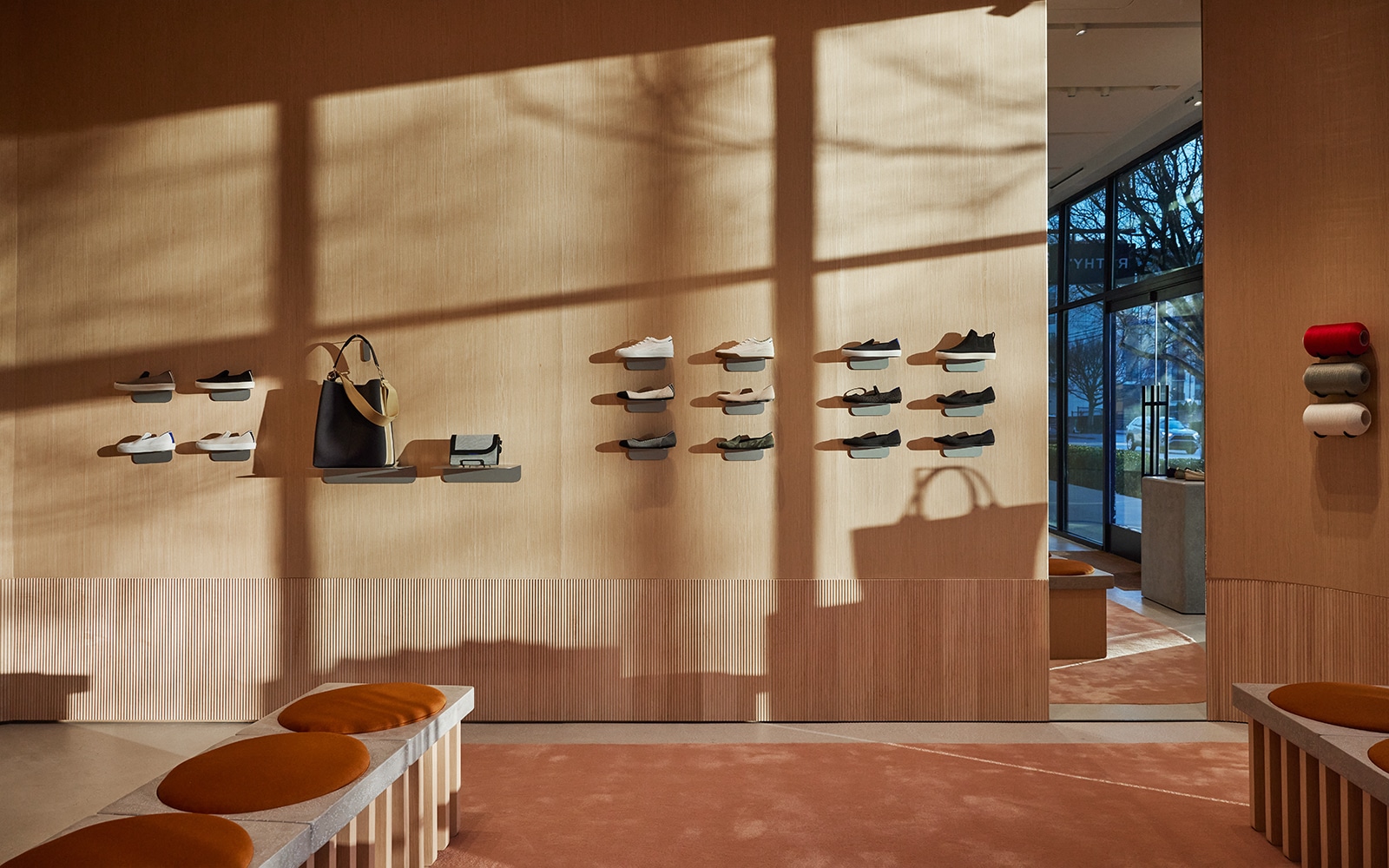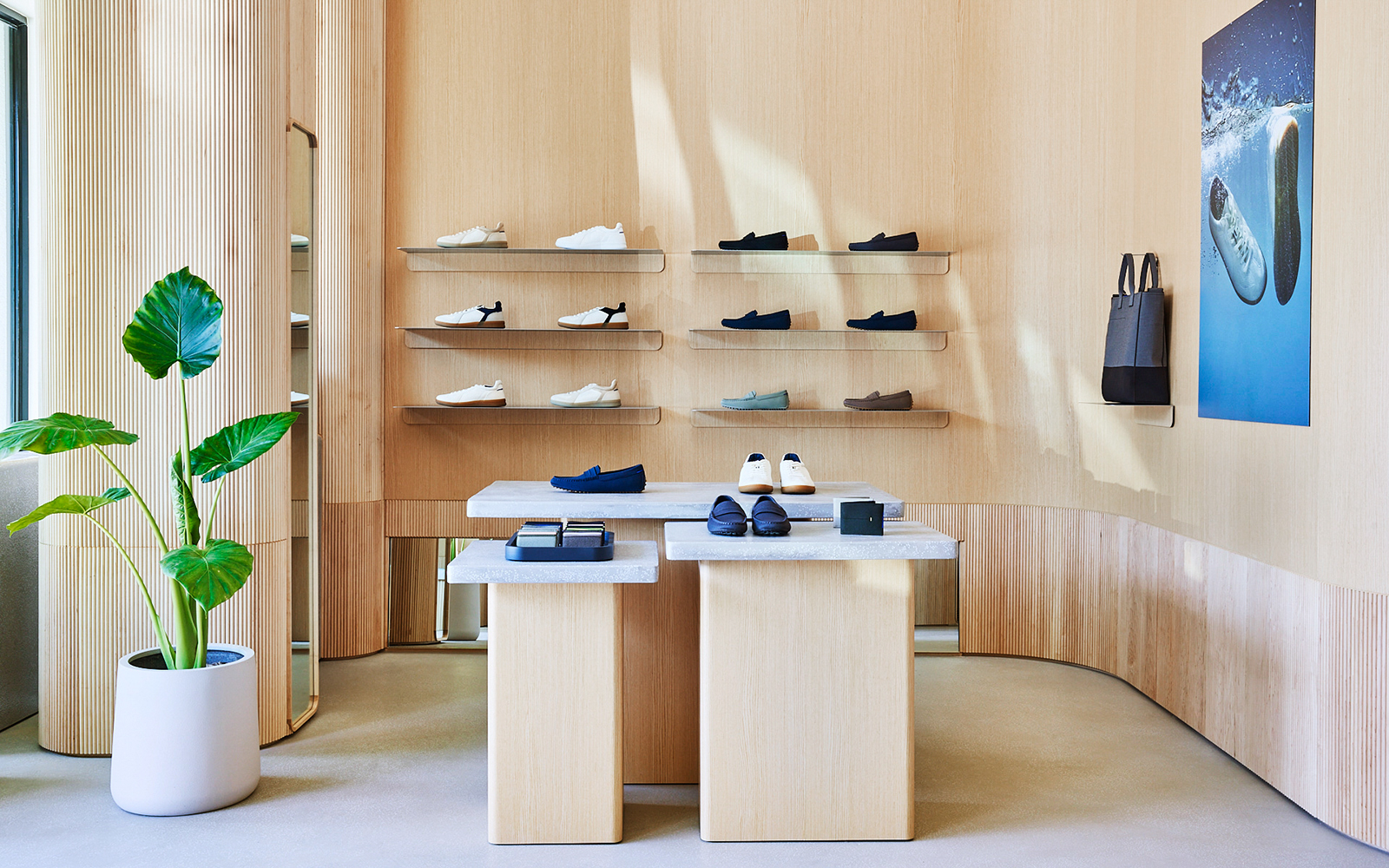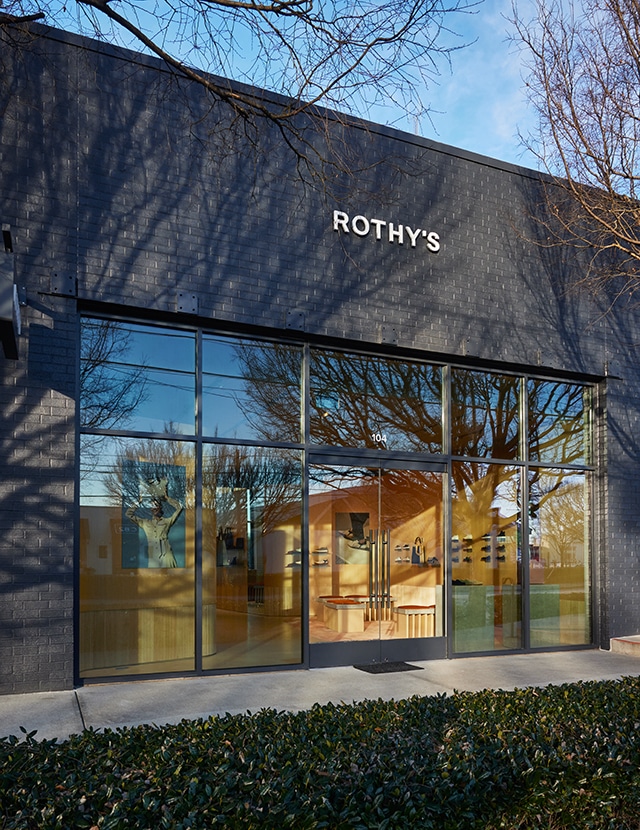|
Getting your Trinity Audio player ready...
|
When Stephen “Hawthy” Hawthornthwaite and Roth Martin’s company launched in 2016, it offered exactly two products: the Flat and the Point. Both were women’s shoes made with single-use plastic and sold only online.
The company was Rothy’s, a trendy and sustainable fashion outlet that now includes other shoe designs as well as handbags and accessories for men, women, and children. The brand is also expanding from the digital space into brick-and-mortar retail.
As vice president of global retail development, Giovanni Lepori is tasked with making a beloved digital brand physical. He’s doing that by importing the Rothy’s culture and aesthetic into his design choices and honoring the company’s foundational commitment to sustainability.

Rothy’s has been on a meteoric rise, thanks in part to celebrities, fashion critics, and fans praising its products for their undeniable comfort, smart style, and positive social impact. They’ve also praised the budding lifestyle company for its entrepreneurial spirit and fast-paced innovation. In 2021, TIME listed Rothy’s among the most influential companies of the year.
What makes the company so innovative? After seeing firsthand the alarming amount of waste produced by the footwear industry, the founders of Rothy’s set out to produce an eco-conscious shoe by perfecting the “bottle to shoe journey.” Using thread spun from recycled plastic bottles, Roth and Stephen harnessed the power of 3D knitting to create a durable and comfortable shoe made with almost zero waste.
“Rothy’s is creating a shoe in a totally different way,” Lepori says, adding that the traditional method of building a shoe from cloth or leather produces excess and unused scrap material. Understanding the importance of transparency and traceability, Roth and Stephen also set out to build their own factory, ensuring that every point on the journey, from design to production, was handled in-house in a sustainable way.

The lightweight, flexible shoes are machine washable. To date, Rothy’s has converted more than 146 million plastic bottles into shoes and used more than 490,000 pounds of ocean-bound marine plastic for its accessories.
The company is also hoping to achieve full circularity in production by the end of 2023. Instead of creating waste like other apparel companies, Rothy’s will find ways to not only create products from recycled materials but also recycle those products.
The focus on sustainability at Rothy’s has drawn companies like Trinseo, a global materials manufacturer, to partner with them. “We are looking ahead to our next decade and beginning an exciting new journey to transform our company into a specialty materials and sustainable solutions provider,” says Frank Bozich, president and CEO of Trinseo. “Partnering with sustainably focused brands pioneering within their category, such as Rothy’s, is the perfect journey to progress together.”

Lepori, who was born in Florence, Italy, has worked for top brands like Prada and Dior. He’s helping the company grow its retail footprint, which started when Rothy’s opened its first boutique on Fillmore Street in San Francisco’s Pacific Heights in 2016. Since then, they’ve added thirteen stores and will expand to reach a total of sixteen by the end of 2022.
The physical stores give Rothy’s evangelists and curious skeptics alike the chance to touch, feel, and try on the unique products. As the company moves away from its original online-only model, Lepori is developing the offline experience and creating touchpoints that represent the physical manifestation of Rothys.com.
He’s accomplished that by focusing on sustainability in both design and format. Lepori is using the same recycled materials from Rothy’s shoes to cover benches and other surfaces in each store. Forest Stewardship Council-certified wood panels cover magnetic walls and thin moveable shelves that display a smart and carefully chosen product assortment.

Lepori says each location is a “blank canvas” that can be reconfigured quickly as associates swap out merchandise, dial inventory up and down based on demand, and “tell different stories in different ways.” A short lead time and control over its factory allows Rothy’s to avoid overproduction and reduce waste in the supply chain.
Rothy’s demonstrated the influence it can have in this space in the lead-up to the 2022 US Open tennis tournament. The company introduced a limited-edition special collection consisting of shoes, a hat, a visor, and bags made from 72,000 Evian water bottles gathered from the same event in the previous year.

Lepori expects the company to try more daring initiatives in the coming years. “This is a company that’s always had the courage and the vision to try things nobody else will do,” he says.
The future is both green and bright for Rothy’s. In late 2021, its leaders announced a cash infusion from Alpargatas, which gave the Brazilian owner of Havaianas a 49.9 percent ownership stake in the company. The young brand has a cult following and more than two million customers. Lepori is helping Rothy’s put its best foot forward as it moves deeper into the physical retail environment.
Trinseo, a specialty material solutions provider, partners with companies to bring ideas to life in an imaginative, smart, and sustainability-focused manner by combining its premier expertise, forward-looking innovations and best-in-class materials to unlock value for companies and consumers. Trinseo’s approximately 3,400 employees bring endless creativity to reimagining the possibilities with clients all over the world from the company’s locations in North America, Europe, and Asia Pacific. Trinseo reported net sales of approximately $4.8 billion in 2021. Discover more by visiting trinseo.com and connecting with Trinseo on LinkedIn, Twitter and Facebook.


